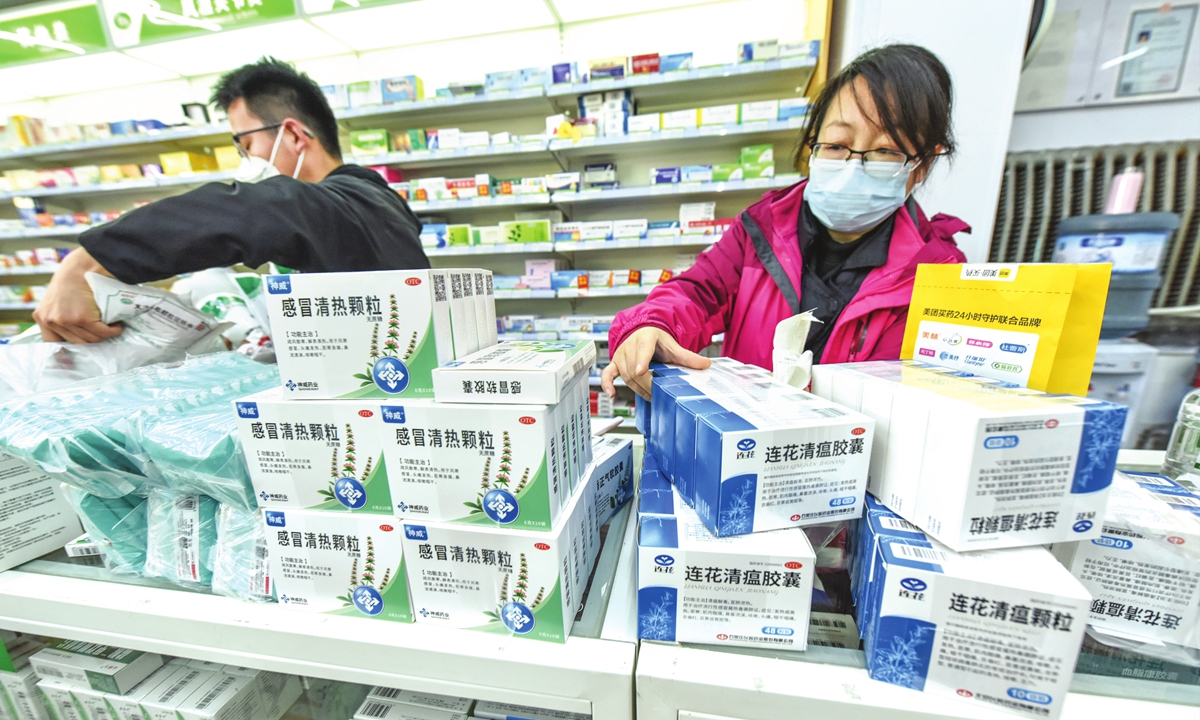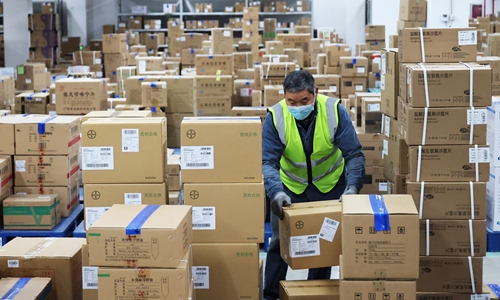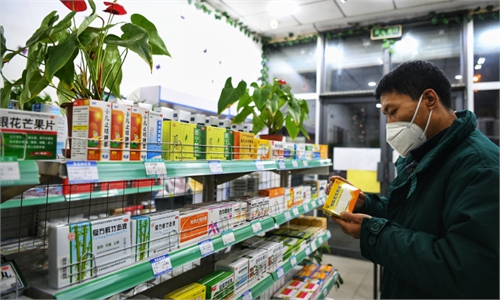
People in Shijiazhuang, capital of North China's Hebei Province, buy antipyretics and cold medications in a drugstore on November 15, 2022.Photo: VCG
Chinese tech giant Tencent rolled out a new mini program on its WeChat platform aimed at helping people share their surplus medicine as the recent Omicron infection flare-ups have pushed up demand for analgesics and antipyretics.
Called "COVID-19 Protection Drugs Public Welfare and Mutual Aid Platform," the mini program aims to help the public more efficiently share surplus medicines, according to a post Tencent sent to the Global Times on Wednesday.
For users who need medicine, they can choose "I need medicine," and fill in information such as location and contact information. After completing the real-name authentication, they can post their medicine needs to the platform.
On the premise of meeting their own medication needs, users can also choose "I have more medicines," and fill in relevant information and real-name authentication, to help meet the needs of fellow users.
Multiple local governments have advocated neighborhood mutual assistance and drug sharing. Everyone should purchase urgently needed daily medicines in a rational, appropriate way and share excess medicines like antipyretics and other anti-epidemic materials with those who really need them.
Chinese officials have also been stepping up efforts to secure supply.
At a press conference on Tuesday, the National Medical Products Administration said that it has increased support for the market supply of medications related to the epidemic, including guiding pharmaceutical companies to conduct research in accordance with regulations and expand production capacity in an orderly manner.
Wuhan, capital of Central China's Hubei Province, began to release 3 million ibuprofen tablets each day for a week from Saturday, while Jinan, capital of East China's Shandong province, announced that 1.1 million ibuprofen tablets have been released to the market.
In Beijing, where infection numbers have spiked, the local drug administration and other authorities have sent joint working groups of more than 50 people to five large pharmaceutical wholesale enterprises in the Chinese capital, cooperating to alleviate the current shortage of epidemic prevention drugs.
Global Times


